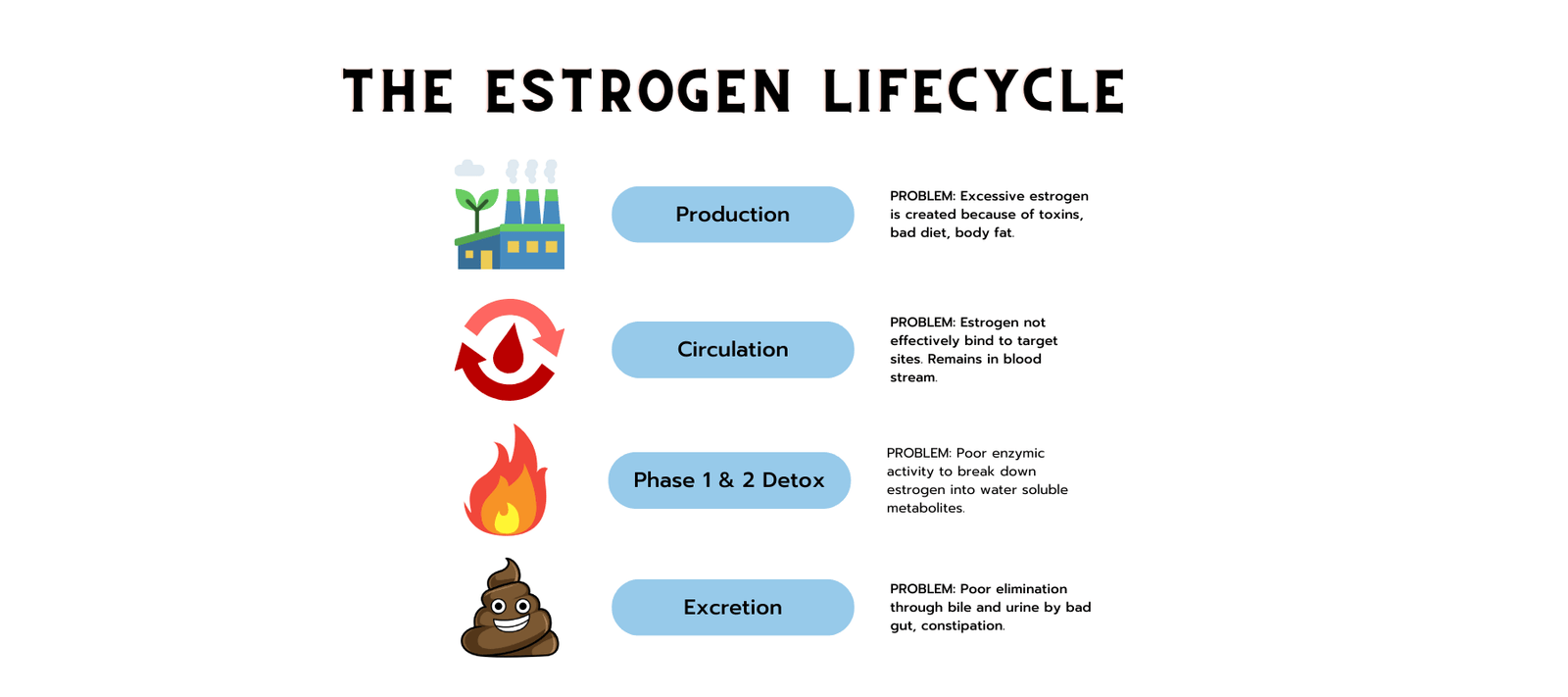Alpha GPC is a concentrated Choline B-Vitamin supplement. In this ultimate guide to Alpha GPC, you're going to see many studies highlighting this compounds neurodevelopment and memory benefits.
You'll also discover stacking ideas, alternatives, and understand how much Alpha GPC you need to take for optimal cognitive performance.
Table of Contents
- Quick overview of Alpha GPC
- What is Alpha GPC and Where Does it Come From?
- Studies on Brain Development
- Studies on Memory and Learning?
- Studies on Executive Function
- Studies on Energy, Attention and Motivation to Work
- Studies on Physical Power and Growth Hormones
- How to take Alpha GPC (Step-by-Step)
- What Stacks Well with Alpha GPC?
- Alpha GPC versus CDP Choline (Citicoline)
Quick overview of Alpha GPC
- Benefits: Primarily aiding in the development of brain-cells thanks to its Choline content.
- Actions: Metabolizes into the Choline B-Vitamin. Choline builds brain-cell membranes and creates the learning neurotransmitter Acetylcholine.
- Who is it good for? People who are Choline deficient (80% of the population) tend to get brain-fog. Also, those taking racetams should take a Choline supplement since racetams deplete Choline levels faster.
- Quality of studies: Choline has been thoroughly studied for over 20 years by Steven Zeisel (UNC) and Richard Wurtman (MIT). Neuroscience is in agreement that Alpha GPC is "essential to brain development" (University of Oxford)
- Time to effect: 3 months
- Stacks with: Uridine Monophosphate and DHA (found in omega-3) for enhanced Acetylcholine production and brain-cell repair
- Don't stack with: Other Choline supplements like CDP Choline because you only need to reach the recommended daily intake.
- Recommended dose: Most people need 500mg-1000mg/day to reach the recommended daily intake. More details on how to calculate your ideal Alpha GPC dosage below.

What is Alpha GPC and Where Does it Come From?
Alpha GPC (L-Alpha glycerylphosphorylcholine) is a natural compound found in the brain. As a supplement, manufacturers extract Alpha GPC from Soy Lecithin.
1. Alpha GPC is effective at raising neural Choline levels
Alpha GPC is very effective at raising neural Choline levels. Choline has been widely studied to be integral to our cognition and overall brain development. Once ingested, it's quick to cross the brain-blood barrier. In fact, a study found that it incorporated into the brain's phospholipids of mice within 24 hours. Phospholipids are the raw materials we use to repair brain-cell membranes.
2. Alpha GPC contains twice the Choline content than CDP Choline
Alpha GPC is 40% Choline by weight. In other words, 1000mg of Alpha GPC would metabolize into 400mg of Choline. This is more than double the concentration of CDP Choline, which stands at 18.5% Choline. It's also about the same as Choline bitartrate, which has a similar concentration of 40%.
As a nootropic, Alpha GPC is light years ahead of Choline bitartrate. Choline bitartrate, while cheaper, does not raise neural Choline levels. Alpha GPC does.
Studies on Brain Development
Alpha GPC's nootropic qualities lie in its Choline B-Vitamin content. In an interview, Dr. Steven Zeisel from UNC said that Choline performs 2 key roles:
1. Choline builds the outer-wrapper of our brain-cells
Choline's key role is creating Phospholipids, a type of fat that we use to form our brain cell's outer wrappers called cell membranes. These hold our brain-cells together.

2. Choline creates our main chemical messenger Acetylcholine
Choline plays another critical role in connecting our brain-cells together. Not only does Choline repair brain-cells, it creates Acetylcholine. This is our main nerve messenger, according to Dr. Zeisel. Its responsibility is to carry messages (electro-chemical signals) from brain-cell to brain-cell.

People often call Acetylcholine the learning neurotransmitter. That's because it's often involved in sending messages to our memory center (hippocampus).
Studies on Memory and Learning
People oft en call Acetylcholine the learning neurotransmitter. That's because it's often involved in sending messages to our memory center (hippocampus). Here are some interesting results that researchers have seen regarding memory-gain:
1. Boosted immediate memory recall
The University of Milan saw Alpha GPC to benefit short-term and long-term memory. In one study, healthy men aged 18-39 saw immediate memory-recall gains. (2)
2. Alpha GPC creates the proteins necessary for long-term memory formation
Another study from the University of Milan saw increases in proteins associated with long-term memory (Protein Kinase C). When we form long-term memories, we use proteins to "solidify" the link in our neural network. Neuroscientists call this long-term potentiation. (3)
3. A correlation between Choline intake and verbal and visual memory
Boston University also found Choline intake to correlate with verbal and visual memory. This Framingham study included 1,371 healthy young men and women. (Boston University - 4)
Studies on Executive Function
Executive function means our ability to plan, organize and manage time. Things that require the use of our frontal cortex (the large area at the front of our brains).
1. Choline improves executive function and reaction times
University of Oslo researchers found Choline to improve executive function and mental processing. That includes things like planning, organizing and managing time.
They also saw Choline to boost sensory motor speed and perceptual speed. In other words, your awareness and the speed at which you react to stimuli.
Studies on Energy, Attention and Motivation to Work
1. Choline improves attention scores
University of Utah researchers found Choline to improve attention among healthy young women. (University of Utah - 6)
2. Choline boosted mental energy by 14%
Harvard Medical School found Choline improved mental energy by as much as 14%. (Harvard Medical School and McClean Hospital - 7)
3. Choline makes you more sensitive to the “motivation neurotransmitter” Dopamine
The University of Barcelona observed that Choline increases our sensitivity to Dopamine. This is significant to focus because dopamine is "motivation" at a chemical level. Brain-scans have shown that people with higher dopamine levels tend to be go-getters. (The University of Barcelona - 8)
4. Alpha GPC boosts Dopamine production
Researchers observed that Alpha GPC increases the activation of “striatal dopaminergic output”. So now you're releasing more of the motivation chemical and you're more sensitive to it. If you need to get things done, Choline can help you stay motivated to work harder at a chemical level. (Trabucchi M. - 9)
5. Higher Dopamine levels correlate with “go-getter” behaviour
Brain scans showed that people with higher dopamine levels tend to be “go-getters” and work harder. People with lower dopamine levels tend to be “slackers”. (Vanderbilt University - 10)
Studies on Physical Power and Growth Hormones
Alpha GPC is a unique Choline supplement because studies also suggest that it has a postive effect on our physical strength.
PS: It’s worth noting that if you are a professional athlete, check with the regulations to make sure taking Alpha GPC won’t get you flagged.
1. 1000mg of Alpha GPC was studied to significantly increase growth hormone after 65 minutes of ingestion. (Ritsumeikan University – 11)
2. 600mg of Alpha GPC 45 minutes before training increased athlete power output by 14% as assessed by bench throws. (Journal of the International Society of Sports Nutrition – 12)
3. “Alpha GPC is effective at increasing lower body force production after 6 days of supplementation. Sport performance coaches can consider adding A-GPC to the diet of speed and power athletes to enhance muscle performance.” (Journal of the International Society of Sports Nutrition – 12)
How to take Alpha GPC (Step-by-Step)
For most people, 500-1000mg of Alpha GPC every day will supply your brain with the Choline it needs for optimal brain-development and memory function.
The finer details and scientific reasoning behind this:
1. The Recommended daily Choline intake: The Linus Pauling Institute and the US institute of Medicine recommend that only a daily basis, men should get 550mg and women get 425mg of Choline.
2. Calculate your current Choline intake: Roughly work out your daily Choline intake from your diet. Most people tend to get around 200mg of Choline per day from their diet.
3. Understand how much Choline Alpha GPC gives you: Alpha GPC is 40% Choline by weight, which means that each 250mg Alpha GPC capsule would give you 100mg of Choline, 1 gram of Alpha GPC powder would give you 400mg of Choline and 1 gram of Alpha GPC 50% powder would give you 200mg of Choline.
4. Take your Alpha GPC: Take your Alpha GPC on a daily basis at different times of day (with gaps of 4-6 hours) to meet the recommended daily Choline intake. Alpha GPC has a half-life of 4-6 hours (this is how long it lasts in your body), which is why you should take it throughout the day instead of all at once.
5. Finding your optimal dosage: Some people have seen better results from exceeding the “official” recommended dose. According to Dr. Steven Zeisel, 10% of men would be better served by getting 850mg/day of Choline. All of our bodies break down Choline at different rates, so some people may need more.
7. Know your limit: If you produce too much Acetylcholine from too much Choline intake, you will get a headache or experience brain-fog. This won’t last long, but it’s a good indication of what your “limit” is.
What Stacks Well with Alpha GPC?
1. Uridine Monophosphate: Studies at MIT revealed that Uridine synergises extremely well with the Choline b-vitamin – the combination increases the production of neuron cell membranes and improves spatial awareness and selective attention.
2. Caffeine: Caffeine is seen to increase Acetylcholine release because it improves our ability to absorb Choline. “Coadministration of caffeine with choline significantly increased ACh release after each of the choline doses tested.” (Massachusetts Institute of Technology – 13)
3. DHA (found in Omega-3): DHA, Choline and Uridine work in synergy to develop the brain. When taken together, the production of phosphatidylcholine, used to build neuron cell membranes, increased by 45%.
Alpha GPC versus CDP Choline (Citicoline)
1. Alpha GPC contains more Choline than CDP Choline: Alpha GPC is 40% Choline by weight, whereas Citicoline is 18.5% Choline by weight. 250mg of Alpha GPC would provide 100mg of Choline. 250mg of Citicoline would provide 46mg of Choline. For strictly Choline supplementation, Alpha GPC tends to be the more popular choice.
2. Alpha GPC has a shorter half-life than CDP Choline: Alpha GPC lasts 4-6 hours in the body, whereas CDP Choline lasts 60-70 hours (roughly 3 days). As a result, Citicoline accumulates in the system.
3. Citicoline also breaks down into Uridine: But only at the plasma level. In other words, it’s not going to raise your neural (brain) Uridine levels that much. For this, you’d need to take Uridine Monophosphate.
Where to buy it?
We recently launched Choline Brain Food, which combines Alpha GPC and DHA.
References
- LPB Research Institute - https://www.ncbi.nlm.nih.gov/pubmed/8243501
- University of Milan - https://www.ncbi.nlm.nih.gov/pubmed/2071257?ordinalpos=1&itool=EntrezSystem2.PEntrez.Pubmed.Pubmed_ResultsPanel.Pubmed_RVDocSum
- University of Milan - https://www.ncbi.nlm.nih.gov/pubmed/8239301
- Boston University - http://ajcn.nutrition.org/content/94/6/1584.abstract?sid=3af7108c-0055-49f4-9dfb-52bd432c1dfd
- University of Oslo - https://www.ncbi.nlm.nih.gov/pubmed/22717142
- University of Utah - http://www.scirp.org/journal/PaperInformation.aspx?PaperID=19921#.VZrQM_lViko
- Harvard Medical School and McClean Hospital - https://www.ncbi.nlm.nih.gov/pubmed/18816480
- University of Barcelona - https://www.ncbi.nlm.nih.gov/pubmed/1839138
- Trabucchi M. - https://www.ncbi.nlm.nih.gov/pubmed/3709792
- Vanderbilt University - https://news.vanderbilt.edu/2012/05/01/dopamine-impacts-your-willingness-to-work/
- Ritsumeikan University – https://www.ncbi.nlm.nih.gov/pubmed/22673596
- Journal of the International Society of Sports Nutrition - https://jissn.biomedcentral.com/articles/10.1186/1550-2783-5-S1-P15
- Massachusetts Institute of Technology - https://www.ncbi.nlm.nih.gov/pubmed/1435067




Laury
November 19, 2020
Very Good article! thank you !